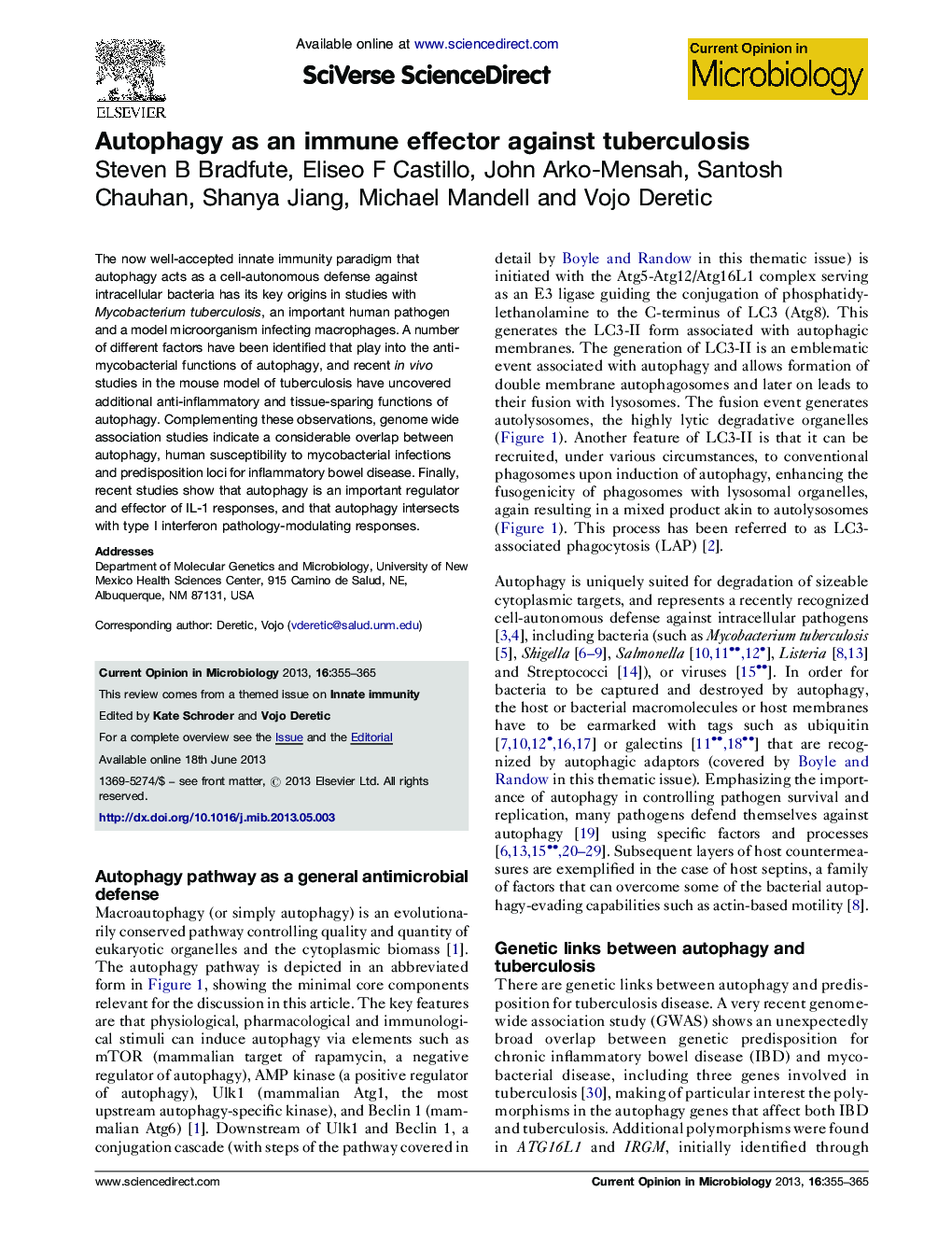| Article ID | Journal | Published Year | Pages | File Type |
|---|---|---|---|---|
| 6132337 | Current Opinion in Microbiology | 2013 | 11 Pages |
Abstract
The now well-accepted innate immunity paradigm that autophagy acts as a cell-autonomous defense against intracellular bacteria has its key origins in studies with Mycobacterium tuberculosis, an important human pathogen and a model microorganism infecting macrophages. A number of different factors have been identified that play into the anti-mycobacterial functions of autophagy, and recent in vivo studies in the mouse model of tuberculosis have uncovered additional anti-inflammatory and tissue-sparing functions of autophagy. Complementing these observations, genome wide association studies indicate a considerable overlap between autophagy, human susceptibility to mycobacterial infections and predisposition loci for inflammatory bowel disease. Finally, recent studies show that autophagy is an important regulator and effector of IL-1 responses, and that autophagy intersects with type I interferon pathology-modulating responses.
Related Topics
Life Sciences
Immunology and Microbiology
Microbiology
Authors
Steven B Bradfute, Eliseo F Castillo, John Arko-Mensah, Santosh Chauhan, Shanya Jiang, Michael Mandell, Vojo Deretic,
